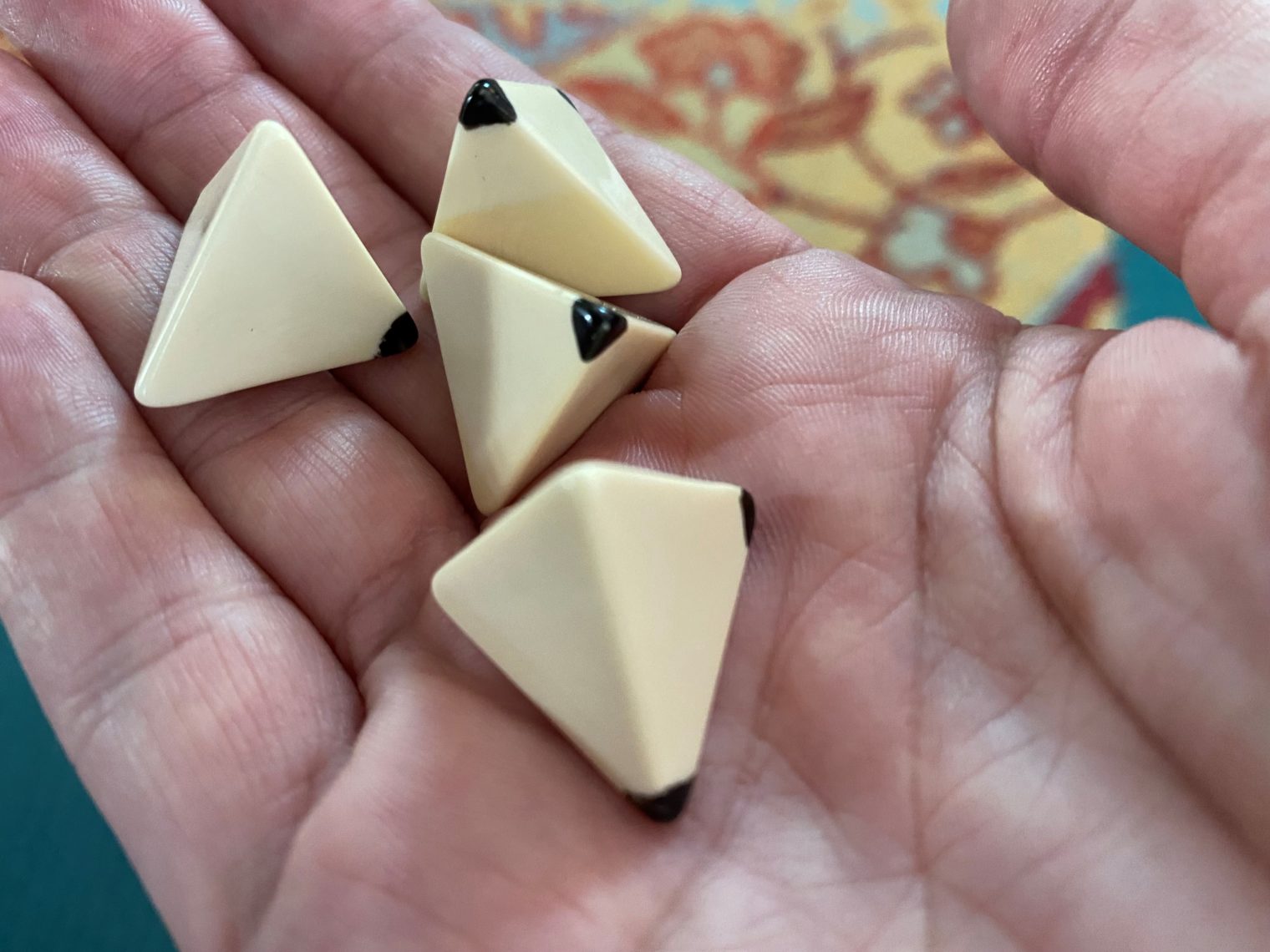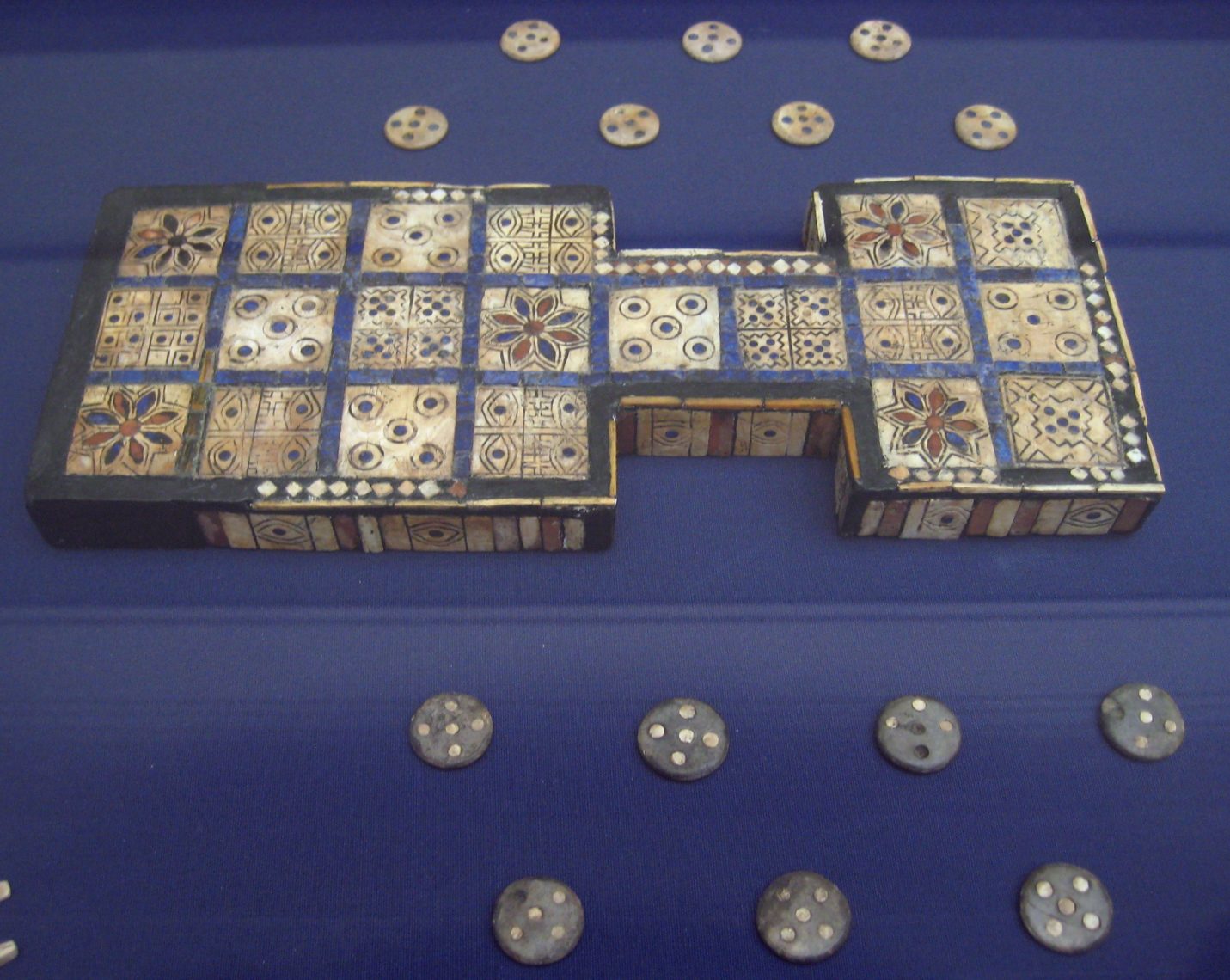Now listen, I don’t know anyone who would say that Sorry! is a complicated game, but I know plenty who would groan if someone suggested it for game night, plenty who would say it takes too long for what it is, plenty who would say there are so many better roll-and-move games (sorry, David W., for resorting to mechanic!), so many more visually-pleasing games. And you’d be right. What if I told you, there is a game was the most popular across entire populations 4500 years ago, whose popularity lasted around 3000 years, that plays a bit like Sorry!, and that is unequivocally a banger? It’s called The Royal Game of Ur and as the title says, it is better than Sorry! in every possible way.

Two players roll pyramidal dice and race to get their own seven tokens off the board as quickly as possible while going after the other mercilessly. Possible paths of play and more historical information are available at the Wikipedia page for the game. Simply put, your seven pieces begin off the board, can move safely without fear of being landed on and removed for their first four spaces, enter a communal bloodbath of an 8-space-long straightaway where you land on each other left and right, then turn off into your own safe two-space section before bringing them safely off the board at the end. Sound familiar? Rather than cards, players roll dice to move 0-4 spaces, and that possibility of zero is both more frustrating and more hilarious than you’d expect. Along the way a few star-shaped spaces signify both that they are safe and that the player can roll again. Fifteen spaces and your piece is off the board? Easy-peasy!
I’m afraid not. Where Sorry! holds you back with requirements for even getting pieces on the board and slows you down with the illusion of choice, Ur throws you into the race like those jet engine catapults on carrier ships except it’s directly into a meat-grinder. The path you travel is laughably shorter than in Sorry! but you have almost twice as many pieces to get to safety. This shift more than anything else makes for an intensity and a swing that keeps me coming back over and over. I’ve gone from having four pieces on the board lined up well to get out efficiently only to have all of them back at start in a couple of turns. And a player struggling to get even one piece out for most of the game can end up winning simply because the other chokes their pieces up at the exit or rolls back-to-back-to-back zeroes. It’s fast and exciting and mean and I love it. So does Irving Finkel, the curator in the British Museum who finally translated an approximation of the rules from Babylonian clay tablets in the early 1980s. Finkel isn’t just a stuffy academic though—he’s hilariously competitive and is the proud owner of one of the most righteous beards I’ve ever seen. You can witness the majesty and delight in this YouTube video where he teaches Tom Scott how to play and then proceeds to trash-talk him into oblivion.
The game boards back in the day ranged from gloriously-inlaid with stones like the one below, which is in the British Museum*

to scratched hastily into the stone 2500 years ago at the base of the Assyrian city gate by the guards so they could play when things got slow:

I’ve seen both of these boards in person and the scratched-out one had me catching my breath: I felt so connected to those bored guards millennia ago, their desire to pass the time, to compete, to play. It was a game that worked equally well as a fancy art-piece and with whatever bits came to hand.
The Royal Game of Ur was eventually displaced by Backgammon and was forgotten for centuries by all but a small Jewish population in India who were still playing it in the 1950s. Sorry! came into the world in 1929, long before Finkel translated the tablet, but heavily influenced by another Indian game we now know as Parcheesi. Perhaps Sorry!’s designer William Henry Story had heard tell of Ur as well.
In conclusion, The Royal Game of Ur is prettier, more accessible, faster, meaner, swingier, older, less complicated and just better than Sorry! Change my mind.
*Replicas available for purchase from their shop, though given that the British Museum is chock-full of the spoils of colonialism that they apparently can’t give back, perhaps you’d like to purchase a modern version from a seller on Etsy or make your own!
[…] Royal Game of Ur […]